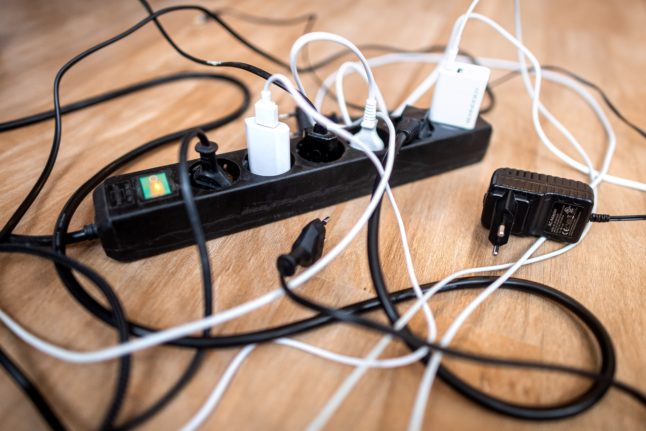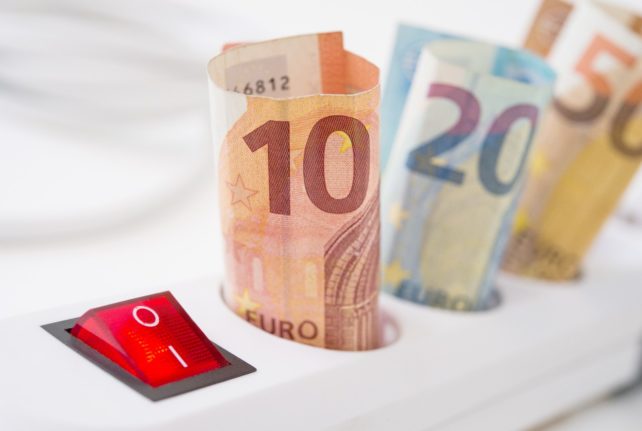Households in Germany concerned about rising electricity bills could soon get some clarity on the relief they can expect.
In an 18-page plan released on Wednesday, the Economics Ministry laid the groundwork for a cap on electricity prices that would be implemented alongside the forthcoming gas price cap.
The government is currently working “at full speed on the national implementation of the European regulation” on corresponding emergency measures, the ministry announced.
“The ideas for the German electricity price brake envisage that consumers will be provided with a discounted basic quota,” it said. This would mean that, much like the planned gas price cap, households would be given a basic allowance of discounted electricity. Usage that exceeds this limit would then be subject to the much higher market prices.
READ ALSO: Consumers in Germany face rising electricity costs in 2023
A household’s annual consumption from previous years is likely to be used to determine how much electricity could be offered at the capped price.
Alongside a huge rise in the cost of fossil fuels, electricity prices have also soared in recent months. This is largely to do with a peculiarity of the electricity market, where gas-fired power plants partially determine the cost of electricity. That means that many households could see their electricity bills double this year.
At the same time, many producers aren’t facing an equivalent rise in costs. Renewable energies, nuclear and lignite power plants produce comparatively cheaply and thus currently guarantee extremely high revenues on the electricity exchanges – otherwise known as windfall profits.
The EU Commission has therefore introduced a framework for a levy on excess electricity profits, but at Germany’s insistence, member states have been given a lot of leeway on how to implement this.
Under the draft plans obtained by Handelsblatt, the new price break would “partially decouple the electricity price from the gas price on electricity bills”.
The relief on electricity for households and businesses should also be “consistent with the implementation of the gas price brake”, the ministry explained.
According to Handelsblatt, the Economics Ministry is considering introducing profit levies for renewable energies, mine gas power plants, waste power plants, nuclear power plants, lignite power plants and power plants that burn oil. To do this, the ministry would calculate the costs of each producer and put a “safety margin” in place to ensure that the businesses aren’t disadvantaged by any miscalculations.
Profits in excess of this would then be taxed at 90 percent.
However, the ministry is also waiting to hear the advice of the gas price commission on how best to proceed with a price cap and windfall profit tax.
“As far as possible and reasonable” there will be a “uniform implementation of gas and electricity price brakes”, the draft explained. According to the paper, the cabinet is due to vote on the measures on November 18th.
READ ALSO:
- How German cities are preparing for potential blackouts
- EXPLAINED: What to do in Germany if there’s a power outage



 Please whitelist us to continue reading.
Please whitelist us to continue reading.
Member comments